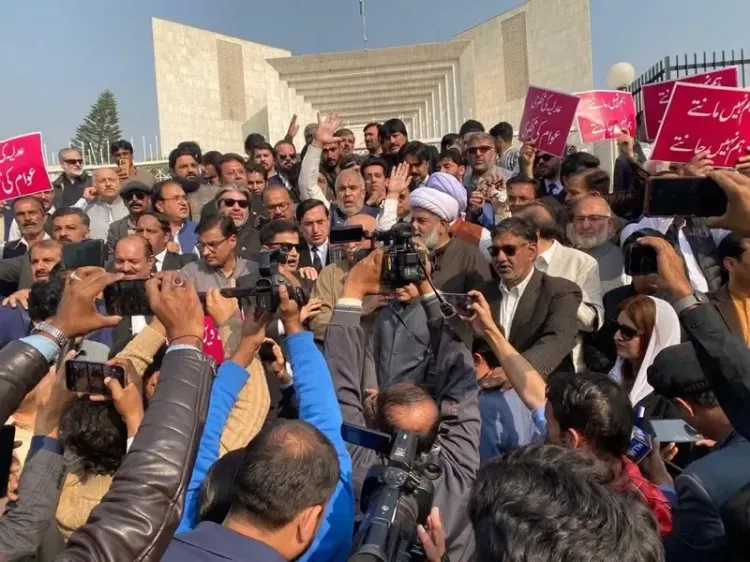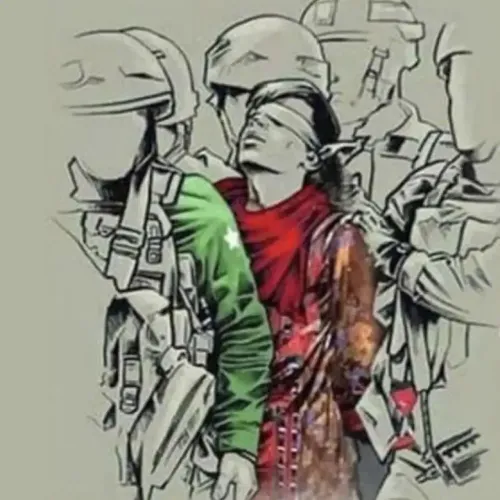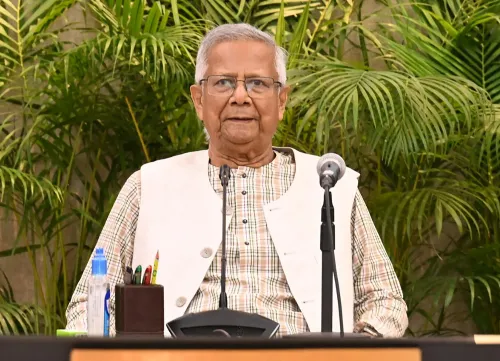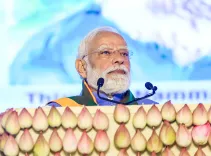Will Political Parties in Pakistan Mobilize Against the 27th Constitutional Amendment?

Synopsis
Key Takeaways
- Mobilization Campaign: A three-day initiative by TTAP.
- Starting Point: Kamo Shaheed, Sindh.
- Conclusion: Campaign ends in Karachi.
- Public Sentiment: Growing frustration with current economic conditions.
- Human Rights Concerns: Issues raised by the HRCP regarding the amendment.
Islamabad, Nov 24 (NationPress) In a bid to further their ongoing efforts against the 27th Constitutional Amendment, the united opposition coalition known as Tehreek Tahaffuz-e-Ayeen-Pakistan (TTAP) has announced a three-day public mobilization initiative slated for the first week of December. This campaign will commence in Kamo Shaheed, located in the Ghotki district of Sindh province, and will culminate in Karachi, as reported by local media on Monday.
Following a meeting with the coalition, TTAP Vice Chairman and Chief of the Sindh United Party (SUP), Syed Zain Shah, addressed the press, stating that the three-day rally is set to traverse multiple cities before arriving in Karachi on the final day.
In a collective statement, the coalition praised the citizens of Sindh for commemorating Black Day on November 21 and lauded the persistent efforts of lawyers nationwide against the 27th Constitutional Amendment.
Additionally, SUP leader Shah remarked that the public is increasingly disillusioned with the current state of affairs in Pakistan, grappling with high unemployment rates, economic difficulties, and soaring inflation.
“The 27th Amendment has compromised the supremacy of the Constitution as well as the rule of law,” quoted Shah from the leading daily, Dawn.
On the previous Sunday, during its 39th annual general meeting, the Human Rights Commission of Pakistan (HRCP) raised alarms about the growing threats to constitutional democracy, civil liberties, and the safety of at-risk communities across the nation.
The rights organization also expressed serious concerns regarding the passage of the 27th Constitutional Amendment, asserting that it jeopardizes judicial independence by increasing executive influence over areas that should remain free from such control.
“This amendment further dilutes essential checks and balances at a time when public confidence in state institutions is tenuous. Lifetime immunity for public officeholders has consolidated unchecked power among a select few, diminishing parliamentary authority,” stated the HRCP.
The HRCP also highlighted the troubling trend of harassment, detention, and forced repatriation of Afghan refugees, many of whom face credible threats of persecution, family separation, and dire humanitarian crises upon their return.
The organization urged the Pakistani government to halt deportations, ensure due legal processes, and uphold international protection standards.
Furthermore, the HRCP warned that religious minorities, especially Ahmadiyyas, continue to endure mob violence, assaults on places of worship, and desecration of graves.
“The state must guarantee protection, prosecute incitement, and implement the long-awaited commission to investigate the misuse of blasphemy laws, as well as legislate against forced conversions,” the HRCP emphasized.
According to the HRCP, child marriage remains prevalent throughout Pakistan, jeopardizing girls’ health, education, and future prospects.
The HRCP called for legislative reform to consistently define a minor across laws and to declare all marriages under the age of 18 illegal.
Highlighting the ongoing violence against women in Pakistan, the rights body commented, “Sexual harassment in educational, public, and private spaces persists; effective reporting, transparent accountability, and preventive training are crucial to protect learning environments and workplaces.”









